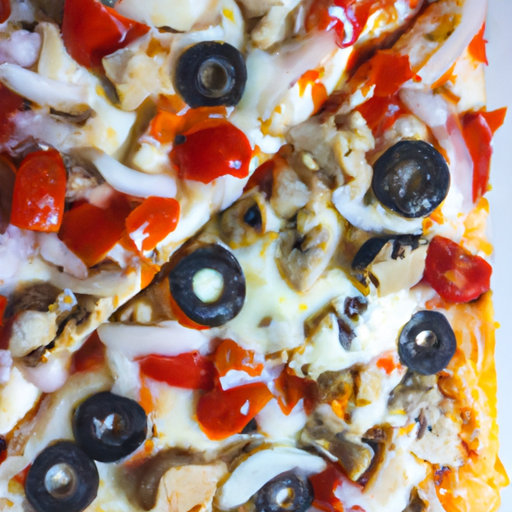In our exploration of weight loss strategies, we were intrigued by the question of whether cheat meals could play a role. Can indulging in those tempting treats actually contribute to a successful weight loss journey? It’s a question that has sparked debate among health enthusiasts and experts alike. In this article, we aim to shed light on this topic and provide insights into how cheat meals can align with your weight loss goals.
Review contents
The role of cheat meals in weight loss
Understanding the concept of cheat meals
When it comes to weight loss, many people assume that strict diets and deprivation are necessary for success. However, incorporating cheat meals into a weight loss strategy can actually be beneficial. Cheat meals refer to scheduled, planned indulgences in food choices that deviate from a typical healthy eating plan. These meals allow individuals to enjoy their favorite foods and satisfy cravings without derailing their overall progress.
How cheat meals affect weight loss
Cheat meals can have both physiological and psychological effects on weight loss. Physiologically, these meals can prevent the body from going into “starvation mode” by temporarily increasing calorie intake. This can help kickstart a sluggish metabolism and prevent it from adapting to a low-calorie diet, thus promoting continued fat loss. Psychologically, cheat meals can provide a sense of relief and satisfaction, making it easier to adhere to a healthy eating plan in the long run.
The psychological impact of cheat meals
The impact of cheat meals on weight loss goes beyond the physical. The psychological benefits of indulging in favorite foods can have a significant impact on adherence to a healthy eating plan. When individuals feel that they can still enjoy their favorite foods occasionally, they are less likely to feel deprived or restricted. This can prevent feelings of guilt or resentment toward the weight loss journey and increase motivation to continue making progress.
Factors to consider when incorporating cheat meals
Setting realistic goals
When incorporating cheat meals, it is crucial to set realistic weight loss goals. It is important to remember that cheat meals are not a free pass to eat excessively and without restraint. Instead, they should be considered a calculated part of a well-balanced and sustainable weight loss strategy. Setting realistic goals ensures that cheat meals are enjoyed in moderation and do not hinder overall progress.
Choosing the right type of cheat meal
Not all cheat meals are created equal. While it may be tempting to indulge in highly processed and calorie-dense foods, it is important to choose cheat meals that provide some nutritional value. Opting for higher-quality ingredients and homemade versions of favorite indulgences can help minimize the negative impact on overall health. It is important to strike a balance between satisfying cravings and ensuring that cheat meals don’t sabotage nutrition.
Timing and frequency of cheat meals
Careful consideration should be given to the timing and frequency of cheat meals. Incorporating cheat meals too frequently or at the wrong times can hinder progress and lead to overconsumption of unhealthy foods. It is recommended to space out cheat meals by at least a week and to plan them after a workout or physical activity when the body can utilize the extra calories more efficiently.
Benefits of including cheat meals in a weight loss strategy
Preventing feelings of deprivation
One of the key benefits of incorporating cheat meals into a weight loss strategy is that they can help prevent feelings of deprivation. Following a strict diet can sometimes lead to feelings of restriction and monotony, making it difficult to stick with a healthy eating plan in the long term. Cheat meals provide an opportunity to indulge in favorite foods and satisfy cravings, which significantly reduces the likelihood of falling off track or bingeing on unhealthy options.
Boosting metabolism
Cheat meals can also have a positive impact on metabolism. When individuals consistently consume a low-calorie diet, the body adapts by slowing down the metabolic rate. Scheduled cheat meals can signal to the body that it is not in a state of deprivation, preventing it from further slowing down the metabolism. This can help maintain or even boost the metabolic rate, making the weight loss process more efficient.
Rewarding progress
Weight loss can be a challenging journey, and it is essential to acknowledge and reward progress along the way. Cheat meals serve as a reward for sticking to a healthy eating plan and achieving weight loss goals. They provide a sense of enjoyment and satisfaction, celebrating the hard work put into making positive lifestyle changes. The occasional indulgence can serve as a motivator to continue making healthy choices and stay committed to the weight loss journey.
Potential downsides of cheat meals
Risk of overindulgence
While cheat meals can be incorporated into a weight loss strategy, it is crucial to exercise moderation and self-control. The risk of overindulgence is always present, and consuming excessively large portions or indulging too frequently can hinder progress. It is important to be mindful of portion sizes and practice portion control even during cheat meals to maintain a healthy balance.
Disruption of healthy eating habits
One of the potential downsides of cheat meals is their potential to disrupt healthy eating habits. It is essential to ensure that the majority of one’s diet consists of nutrient-dense, whole foods. Regularly indulging in unhealthy cheat meals can lead to a decrease in the consumption of essential vitamins, minerals, and other nutrients. It is important to strike a balance by choosing cheat meals that are still relatively nutritious and not overly processed.
Psychological challenges
While cheat meals can have positive psychological effects, they can also present challenges. For some individuals, the inclusion of cheat meals may trigger cravings and make it more challenging to maintain self-control. This can lead to a cycle of overindulgence and guilt, potentially derailing the weight loss progress. It is important to be self-aware and set boundaries to avoid falling into unhealthy habits.
Tips for incorporating cheat meals effectively
Planning in advance
To incorporate cheat meals effectively, it is essential to plan in advance. Set specific dates and times for cheat meals and stick to the schedule. This prevents impulsive decisions to indulge in unhealthy foods and allows for mindful choices when deciding on favorite indulgences.
Controlling portion sizes
Controlling portion sizes is key to ensure that cheat meals do not result in excessive calorie intake. Use measuring utensils or visual cues to help gauge appropriate portions. By practicing portion control, individuals can enjoy their favorite foods without sabotaging their overall progress.
Compensating for extra calories
To maintain balance, it may be helpful to compensate for the extra calories consumed during cheat meals. This can be achieved by adjusting the intake of other meals or increasing physical activity levels. By offsetting the calorie surplus, individuals can still enjoy their cheat meals without negatively impacting their weight loss efforts.
The importance of overall dietary balance
Balancing cheat meals with healthy eating
While cheat meals can be a part of a successful weight loss strategy, it is essential to maintain overall dietary balance. The majority of the diet should consist of nutrient-dense, whole foods that support optimal health and weight loss. Cheat meals should supplement a healthy eating plan rather than replace it.
Choosing nutrient-dense foods
When incorporating cheat meals, it is important to choose options that still offer some nutritional value. Opt for homemade or healthier versions of favorite indulgences, incorporating ingredients that provide essential nutrients. This helps maintain a well-rounded diet even during cheat meals.
Monitoring overall calorie intake
Cheat meals should be factored into the overall calorie intake for the day or week. It is important to be mindful of the total calorie count to ensure that cheat meals do not lead to excessive calorie intake. Keeping track of overall calorie intake can help maintain balance and prevent hindrance to weight loss goals.
Individual differences and personal preferences
Considering individual goals and needs
It is important to take into account individual goals, needs, and preferences when incorporating cheat meals. Some individuals may benefit from more frequent or less restrictive cheat meals, while others may find it better to have stricter boundaries. Customizing the approach based on individual factors can enhance adherence and promote long-term success.
Alternative strategies for weight loss
While cheat meals can be a helpful strategy for weight loss, they may not be suitable for everyone. Alternative strategies, such as a more flexible approach or intermittent fasting, may be more effective for some individuals. It is essential to explore different options and find what works best for each individual’s unique circumstances.
Listening to your body
Lastly, it is important to listen to your body when incorporating cheat meals. Pay attention to how certain foods make you feel physically and emotionally. Some individuals may find that certain foods trigger negative reactions or cravings, and it may be necessary to adjust the approach accordingly. Awareness of one’s body and adjusting based on personal needs is vital for long-term success.
Conclusion
Incorporating cheat meals into a weight loss strategy can be a valuable tool for achieving success. By understanding the concept of cheat meals, considering important factors, and reaping the benefits while being mindful of potential downsides, individuals can find a balance that supports their weight loss goals. With careful planning, portion control, and a focus on overall dietary balance, cheat meals can be enjoyed without compromising progress. Remember to always listen to your body, set realistic goals, and adjust strategies as needed to create a sustainable, enjoyable weight loss journey.



























